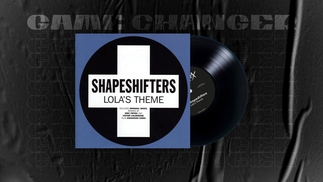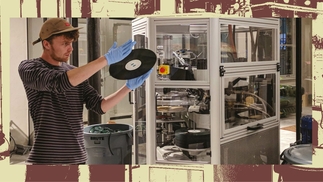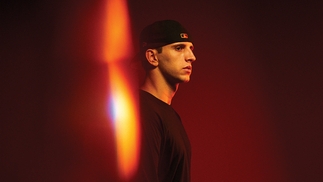Matt Tolfrey - In it for the Long Run
Charting the rise from DJing at seminal Nottingham outpost The Bomb to his current role as the musical polymath behind Leftroom Records.
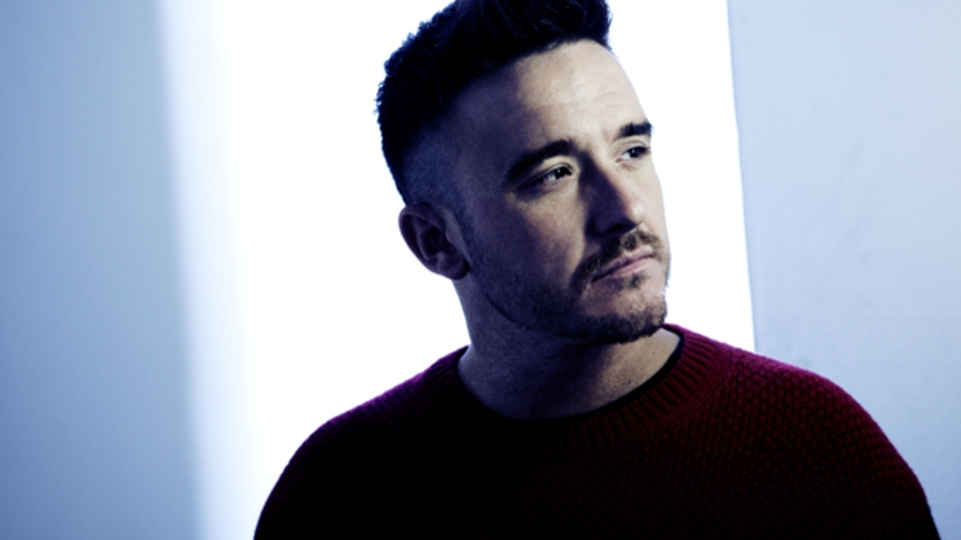
The slow burn. That has always been Matt Tolfrey's modus operandi. He's more concerned with foundations, with building a family of likeminded house heads around him rather than surrounding himself with people who can advance his career. Fortunately, there have been a few of those along the way too, but more by chance than by design. In fact, chance has played more than a cameo role in the Leftroom Records boss' story so far. More than once, he's found himself to be in precisely the right place at precisely the right time.
For him, the right place was Nottingham. And the right time was when James Baillie, the Scots promoter who masterminded Venus, the city's still-feted vanguard of house music, opened up his club The Bomb, a stark underground igloo of a venue which played host to the world's best DJs on a weekly basis. As a student DJ, he was given something of a golden ticket, in turn making Baillie something of a Willie Wonka. It was in Nottingham that he first encountered the likes of the legendary soundsystem DIY, a group of wayward party people with an unwavering dedication to house music. They played monthly Fridays at The Bomb, and while far from the A-list crowd of DJs pitching up on a weekly basis, the deep, US house music that was their calling card had him sold. the deep, US house music that was their calling card had him sold. Tyrant too began its forays into post-prog house at the venue, a night that would end up changing Tolfrey's plans entirely.
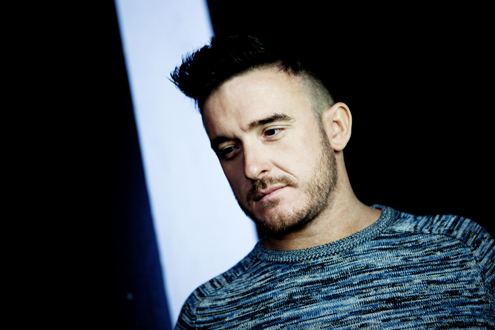
THE BOMB TO FABRIC
His early encounters with house music were through crackly Sasha mixtapes stolen from his brother. Tolfrey grew up in Bahrain in the Middle East, his dad a marine engineer. When he returned to the UK aged 16, Godskitchen in Birmingham provided his first experiences of clubbing. After moving to Nottingham to study, he passed a mixtape to Baillie and the die was cast. Considering the amount of tapes Baillie must have got from student wannabes on a weekly basis, what he handed over must have been something noteworthy. He got himself a regular slot during the quiet months in the summer when the students were away, a great opportunity to hone his craft in a great club and on a great soundsystem. “We would go to The Bomb religiously, every Saturday,” he says. One night, when Sasha, Craig Richards and Lee Burridge's Tyrant night was in town, he got his break. “I got a call saying there was bad news. Lee couldn't make it back to the UK, and did I want to play instead.” Not, as it turned out, bad news for Tolfrey. “I was over the moon. I was not only doing the warm-up, but the closing slot, too. Craig let me play well past my 12am slot. I didn't know if that was good or bad. Not long after, I got a call from Craig one early morning. At first I couldn't work out who it was. He offered me to come down to London to play at Fabric. And that's how it all began.”
Thrust from bar slots and working in Nottingham's record shops to what was the UK's most important new club was a dream come true. Once more, he found himself in the right place at the right time. “It seems like a normal story,” he says. “It's so competitive, I can't imagine things like that happening now. Once I played at Fabric, I started getting booked elsewhere, because it was such a big thing.”
Now came the crossroads. It was a case of completing his studies or seizing what was likely a once-in-a-lifetime opportunity.
Unsurprisingly, he chose the latter. He formed his label Leftroom Records not long after in 2005. “I knew my degree would wait for me,” he says. “The ball was rolling. If I'd taken a year to finish, I would have got forgotten, I thought.”
LEFTROOM
Since that decision, Tolfrey has not looked back. He'd already released a track with production partner Craig Sylvester through Damian Lazarus's Crosstown Rebels, now another solid contact in the business, so he had people he could call up for advice when label matters entered uncharted territory. It was an exciting time, he says, building up that family at the label, and looking to the likes of M-nus and Crosstown for inspiration.
“The one thing I've never done with Leftroom is sign music just because I thought it was going to sell, or by a hyped person. The only music that gets signed to Leftroom is stuff that I'm going to play,” he says. “I need to be 100% behind it. We're not working towards being the next big thing. I'd love to have a Villalobos remix on the label, there's lots of artists I'd love to work with, but I'm glad we've built the amazing family that we have, and we've all got to this point together.” As such the label's roster reads like a who's who of underground house; Glimpse, Lee Burridge, Mark Ashken, Jay Haze, Kate Simko, Subb-an, Audiojack and Huxley have all appeared at some point or other.
Being family doesn't mean that he'll release anything that comes his way, mind. “I'm 100% honest. I've turned down records that have gone on to be huge because they weren't very Leftroom. There's a sense of missing out, or having to let people down, but in the end, the label's mine, I've been doing it for seven years. It doesn't mean it's not good music. That's not the case at all.” Off the record, he reveals one track he turned down which did indeed 'go on to be huge', but he stepped aside to let a bigger label do it the proper justice. A decent gesture.

MATURITY
Even seven years on, and many more since he first picked up a 12”, there are still firsts. Only this past summer did he secure his first residency in Ibiza (at Sankey's Iberian outpost). “I'd only ever done two or three gigs a year over the summer in Ibiza, so I've always felt like I've missed out a bit, on what Ibiza is to the world of music,” he says. “I didn't have anything to get my teeth into. I've friends who DJ there a lot, and who have done seasons there, met the right people etc. I was never really a part of that. I think if I'd gone there as a 22-year-old, I'd have gone insane!”
It was also this summer that he recorded his first Essential Mix, something one would assume he might have done years ago. He joined Cajmere, Carl Cox and DJ Sneak on the bill, each doing an hour from their respective venues in Ibiza over Radio 1 Weekend. (“I won't pretend I wasn't nervous, I was absolutely shitting myself,” he admits).
Maturity is something he's learned to value too, though at 31, he's hardly over the hill. “A lot of older DJs used to tell me that it's not until you reach 30 that your career really starts moving properly, because it takes that long to work out what music you're really into, it takes that long for promoters to trust you properly, for punters to trust you properly, because you're not some young whipper snapper who's going to be playing one style one week, and another the next. Derrick Carter told me at The Bomb that he doesn't even listen to DJs until they're 30, before then they haven't even worked out who they are.”
So now he's hitting his stride, he's also slowly ticking off the clubs he's always wanted to play at. While he's done Berghain and Panorama bar in Berlin, Cielo in New York and, of course, Fabric many times, he's yet to play Womb in Tokyo, Cocoricò in Rimini and Warung in Brazil. But doubtless these opportunities will come. All it seems he has to do is bide his time. He's chosen not to have his every waking hour stuffed with airport transfers and a diary that resembles the logistics of a military campaign. “Some of my friends do four gigs a weekened, every weekend,” he says. “I don't know how they do it, but they are a bit younger than me. There's a need to fulfill your fans, and there are people who are more motivated by money, but I'm hoping to start a family in a couple of years, and funnily enough, I want to see my kids.”
WORD OF MOUTH
But even without the baffling DJing schedule, he's built a solid base on working hard and by wearing as many hats as possible. Not actual hats, obviously. That would be weird.
“My advice to anyone is try and do everything,” he says. “Don't just be a DJ, don't just make music, don't just throw parties, try and do it all. Attack it from every angle, and you'll have more of a chance.”
This spreading himself across the scene might explain why only now is Tolfrey releasing his debut album, ‘Word of Mouth’, an apt title if ever there was one. He worked closely with Sam Russo, one of the Leftroom crew, Justin Drake formerly of Peace Division and the super-hot Huxley as engineers in pulling the set together. He also brought in vocals from San Francisco's Kevin Knapp, Jem Cooke and James Teej, and then snared Ya Kid K from Technotronic for one track, and chopped in vocals from an interview he did with the legendary Marshall Jefferson for another.
The idea 'Word of Mouth' even extended to using software he and Russo found that transforms sung notes into midi notes, a lifesaver for someone without classical music training and time to waste in airports dreaming up basslines. 'Word of Mouth' might also relate to the fact that he talks a lot. Which he does, but in a good way. His enthusiasm is infectious, a great thing for someone who's been slogging at this fickle business for as long as he has and yet still has so many positive things to say about it.
In fact, so enjoyable an experience has it been putting together this debut set, he's considering making ‘Word of Mouth’ a band project, comprising himself, Knapp, Russo and Jem Cooke and taking the whole enterprise into the live realm. “We'd maybe do a couple of live gigs a year, keep them special,” he says. “I'm in this for the long run,” he adds. And if that means taking things slow to make sure they're done right, then so be it. Slow and steady wins the race, after all.
